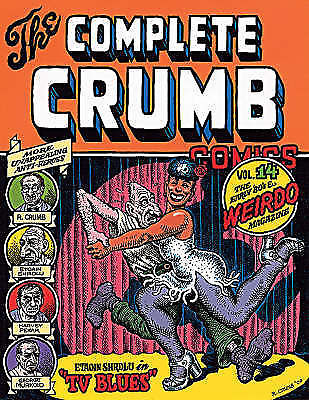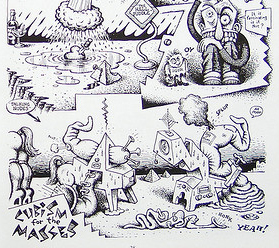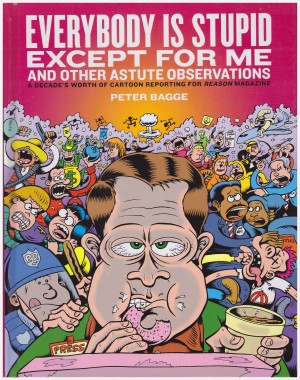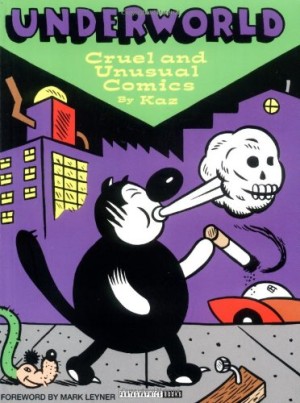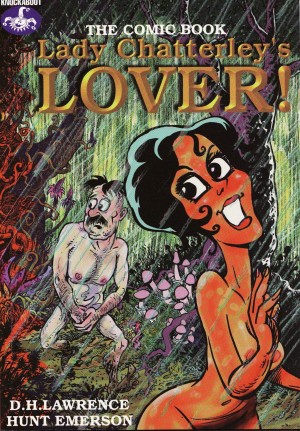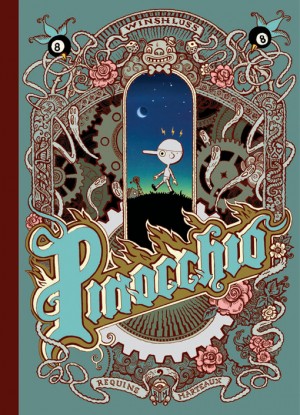Review by Fiona Jerome
There is an awful lot to love in The Complete Crumb Comics Vol 14, containing as it does Robert Crumb’s contributions to his own Weirdo magazine, as well as some of his best collaborations with autobiographical Cleveland script writer Harvey Pekar, which appeared in Pekar’s self-published (and ironically titled) American Splendor magazine. These include the legendary ‘The Maggie’, about Jewish linoleum salesmen in the 1930s – much more interesting than it sounds from that description, as the strip is as much about Pekar’s interaction with the man telling him this piece of local history as it is the job. There’s also the loosely drawn, excellent example of visual characterisation ‘Pickled Okra (Okry)’, about office workers.
Robert Crumb is undoubtedly one of the titans of 20th century cartooning, whose characters half-defined what people think of as Underground comix; in Weirdo he sought to bring back some of the randomness, parodic humour and slapstick of titles he read growing up like Mad magazine. In the process he encouraged and published many young cartoonists like Peter Bagge and Gary Panter, whose confrontational styles and approaches were a million miles away from mainstream comics. His own initial contributions, however, are something of a letdown, harking back to some of the more scattershot undergrounds he produced and centring around visual gags. Weirdo then became more of a ragbag of Crumb’s output, with some great material and some rather dull stuff. The series of illustrations of popular song lyrics, for instance, are entertaining in passing, and contain some jubilant individual drawings, but they’re not the Crumb comics you’re going to remember. On the other hand his selective, salty trawl through the journals of 18th century fornicator, James Boswell, who famously wrote a biography of Dr Johnson, is extremely entertaining, his art style leaning towards a woodcut, illustrative approach.
There are one or two semi-autobiographical pieces like ‘I Remember the Sixties’, full of crazed images including Crumb cuddling a pig and ‘Uncle Bob’s Mid-Life Crisis’, described as “more petulant, introverted stuff”, drawn in a lovely rounded pen and ink style and full of detail. Otherwise Crumb’s artistic energies seem to have gone into drawing the covers and producing another set of trading cards, this time Early Jazz Greats, all reproduced in the (slightly dark) colour section.
Crumb is an artist and writer who bears repeated study, and this volume chronicles one of the most interesting periods of his life, when he was editing as well as creating, providing illustrations, working with Pekar on his scripts, and being involved much more communally in the creative process with other people. Throughout his career Crumb has always looked at new ways of doing things, experimented with new styles. He’s a craftsman who can always turn out a decent comic. In places here he produces excellent ones, but the outstanding element of Volume 14 is the illustrative work it reprints.
